Tablet Toss-Up: Comparing iPad, BlackBerry PlayBook And Galaxy Tab
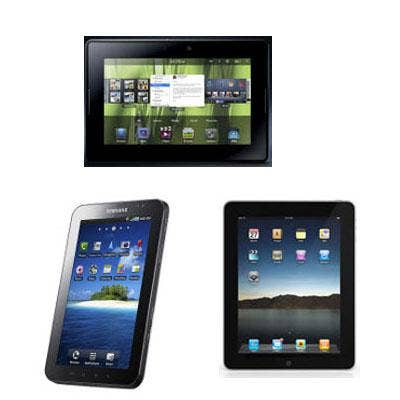
The Tablet Wars
Apple's iPad, RIM's BlackBerry PlayBook and Samsung's Galaxy Tab are perhaps the three most visible contenders in what's quickly becoming an all-out war of tablets. It's a war that's going to see plenty more consumer-centric models enter the fray throughout 2011, and also find itself crowded with business-centric offerings, too, including Cisco's forthcoming Cius device and the recently announced Desktop Video Device from Avaya.
For now, however, it appears to be a three-way battle between three established mobile device titans. Do the Galaxy Tab and the PlayBook have what it takes to challenge IPad, which most analysts see as enjoying a very comfortable lead in the consumer tablet market well into next year? Here's a look at what they're up against, in 10 general categories.
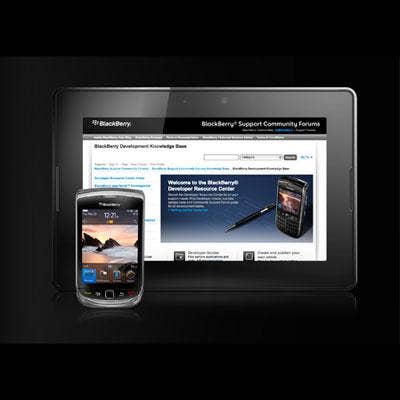
Processing Punch
For now, this one looks like "good, better, best," even though blow-by-blow comparisons of processing and graphics power are at best slippery (battery life, anyone? graphics chipset?), but oversimplified: Apple's iPad rocks an Apple A4 processor, the Galaxy Tab sports an ARM Cortex A8 processor said to offer 1 Ghz; and the PlayBook offers dual-core ARM Cortex A9s. That's punchy.
Edge: PlayBook
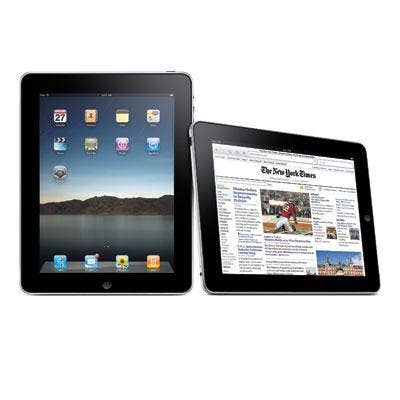
Display
The current models of the Galaxy Tab and the PlayBook both serve up 7-inch displays with resolutions of 1024 x 600. The iPad brings a little more swagger: a 9.7-inch display at 1024 x 768.
Hard to say, really, what takes the cake: a smaller screen size might mean sharper resolution for images -- especially if the display specs between the tablets are similar -- but at the end of the day, you probably can't argue with a bit more visual real estate in exchange for a bit less portability. Apple also wins it in brightness: a just-too-lovely IPS LCD screen.
Edge: iPad
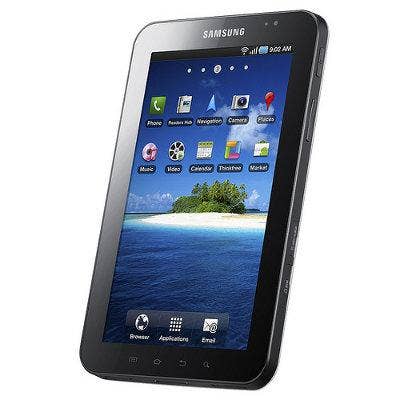
Portability
The PlayBook is both shorter and slimmer than the iPad, coming in at a 7-inch screen and 0.4-inches-thick versus a 9.7-inch screen and 0.5-inches-thick. It's also lighter than the iPad: 0.9 pounds compared to 1.5 pounds. But here's Samsung shaving another 0.1 pounds off of its Galaxy Tab: a 7-inch, 0.8 pounder when all is said and done.
The PlayBook and Galaxy Tab may be similar enough in size and weight to make this one a draw, but if you're carrying around 0.8 pounds of tablet every day versus 0.9, your tired arms may thank you for that tenth-of-a-pound heft savings one day.
Edge: Galaxy Tab
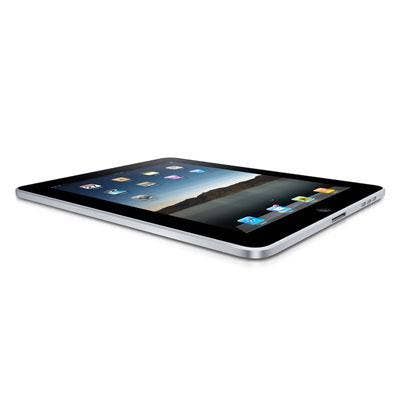
Operating System
Here's where things get a little tricky. You have iOS, Apple's tried-and-true platform. Among a few drawbacks, it can't multitask yet, but supposedly, with iOS 4.2, there's a fix in for that from Apple. You have Galaxy Tab running version 2.2 of Google's red-hot Android OS: the latest version, but according to Google's mobile products boss Hugo Barra, not optimized for tablet computers. The new Blackberry OS, from RIM-acquired QNX, does support multitasking and according to RIM is as reliable as it gets. Looks great on paper, RIM. We have no way to know yet.
Edge: iPad, while we wait for Gingerbread (Android 3.0)
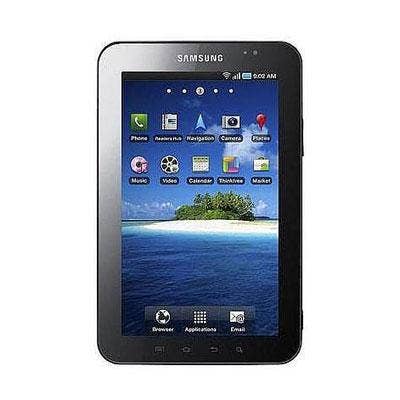
Connectivity
Can't help but call this one a "con" for the PlayBook: the first generation of the device will only support Wi-Fi networks, and even if RIM is promising a bright 3G and even 4G future for the PlayBook, the first PlayBook consumers will be able to buy can't compete on connectivity with the 3G-capable iPad.
As for Samsung, the Galaxy Tab does offer 3G, and several of its versions -- for example, the Verizon-carried Galaxy tab -- will perform as a 3G Wi-Fi hotspot. A close one, but we like the variability of Samsung's best.
Edge: Galaxy Tab
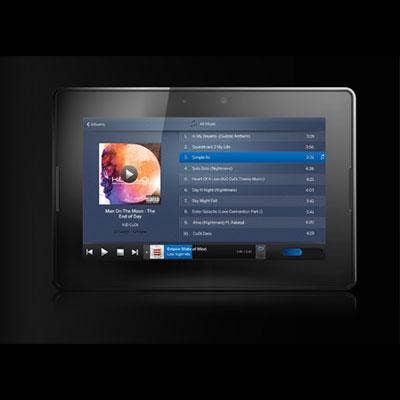
Cameras
The iPad? Doesn't have one. The Galaxy Tab? A 3-megapixel rear-facing camera and a 1.3-megapixel front-facing camera for videoconferencing. The PlayBook? A 3-megapixel front-facer for videoconferencing, and a 5-megapixel rear-facer that promises 1080p video shooting.
Checkmate, RIM.
Edge: PlayBook
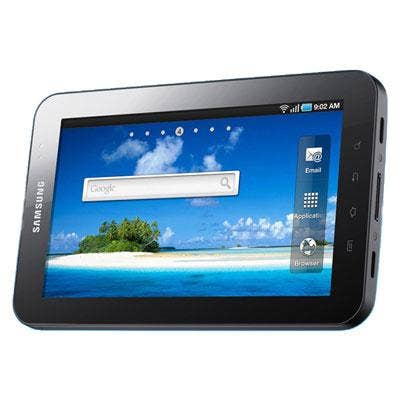
Carriers
The PlayBook? No idea. The iPad? It's spelled "A," "T," "&," "T," which for some wireless subscribers, might just as well be another four-character word.
Galaxy Tab, on the other hand, is going all in: versions are planned -- and have been confirmed by -- all four major U.S. carriers, including AT&T, Verizon, T-Mobile and Sprint, with slight variations on content. Now that's variety.
Edge: Galaxy Tab
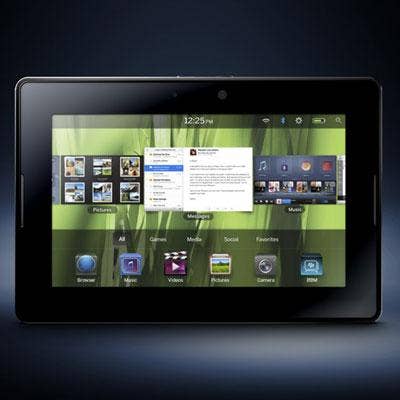
Business Potential
Apple's iPad is ostensibly a consumer device, but according to Apple -- and propped up in this assertion by a few bouquet-tossing analysts -- more than 50 percent of Fortune 100 users are at the very least testing the iPad for business use. Galaxy Tab's business fortunes might go hand-in-hand with Android's adoption in business, but there are other competitive tablet devices -- Cisco's Cius, for example -- that use Android and are purpose-built to run with enterprise unified communications infrastructure.
So we'll give it to RIM, with two major advantages. One, BlackBerry remains (for now) the go-to mobile device for business enterprise users in North America, giving RIM enterprise brand strength. And two, while there are plenty of Apple resellers and you do see the iPad starting to move through the enterprise reseller channel in some quarters (distributor Tech Data, for one, is now offering it), RIM has significant channel strength and a robust channel program for mobile industry VARs. RIM needs to use the channel as its enterprise advantage.
Edge: PlayBook
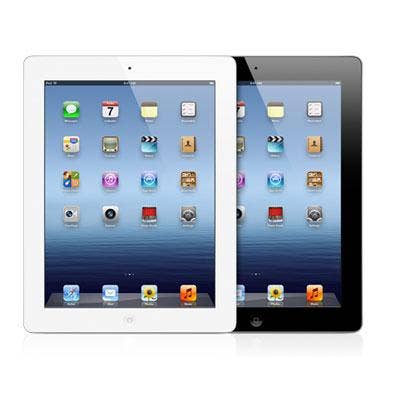
Applications
Galaxy Tab is an Android device. Android's drumbeat is getting louder, and the Android marketplace is growing. The PlayBook is based on QNX. That means a brave new world -- at least where RIM device development is concerned -- for developers, but also, according to RIM, one they're going to love, thanks to a range of development tools RIM said it's providing, and a new service through which PlayBook QNX developers can embed mobile ads using a single line of code, and then reap 60 percent of revenues.
All of which sounds nice. But, oh yeah: the App Store, which passed a quarter of a million apps in August, has swagger to spare. And yeah you can split hairs about apps not being available for iPad versus iPhone, and "quantity doesn't mean quality," etc. The App Store is a juggernaut.
Edge: iPad
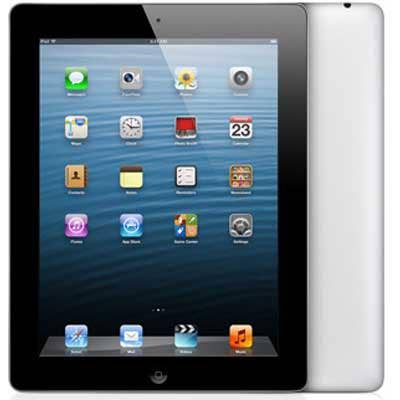
Price and Availability
The Galaxy Tab is on the way. When exactly? Not one of its carriers, nor Samsung itself, has confirmed. The PlayBook is going to miss the holiday shopping season. Sorry, RIM. The iPad, of course, is available now, and has been building its commanding lead for months.
Price is another great unknown for both the Galaxy Tab and the RIM PlayBook. Apple's iPad isn't cheap -- the 16-GB, Wi-Fi only version starts about $500 -- but we do know what we're paying. And we do know where we can get one, and when.
Edge: iPad
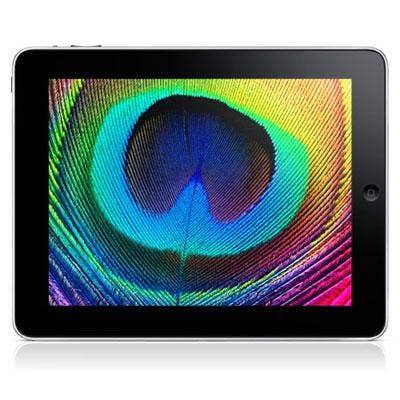
Victory?
One man's tablet treasure is another man's toy, so it doesn't feel quite right to say that one tablet is "better" than another. But based on our admittedly generalized comparisons, here's how the tablets shake out over 10 categories:
RIM BlackBerry Playbook: 3 wins Samsung Galaxy Tab: 3 wins Apple iPad: 4 wins
It's iPad. iPad rules the tablet roost. For now.